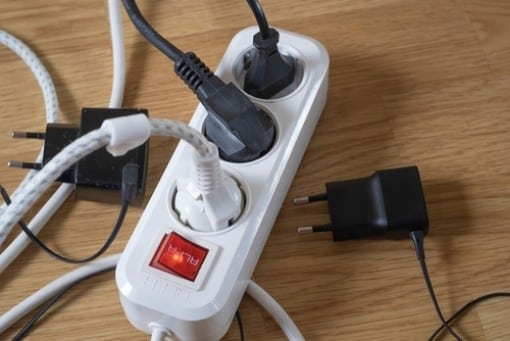How Long Do Solar Batteries Last?
Most solar energy backup systems today use lithium batteries instead of lead-acid batteries because lithium batteries are more efficient, have a longer lifespan, and are lighter in weight.
Lithium batteries can store more energy in the same amount of space as lead-acid batteries.
Lithium batteries can handle more charge and discharge cycles than lead-acid batteries. This makes them a more reliable and cost-effective option in the long run.
Additionally, lithium batteries have a lower self-discharge rate, which means they can retain their charge for longer periods.
Lastly, lithium batteries are also safer for the environment and can be recycled more easily than lead-acid batteries.
Overall, the benefits of lithium batteries make them the more cost-effective and popular choice for modern solar energy backup systems.
How Long Do Lithium Batteries for Solar Power Systems Last?
The lifespan of a lithium battery in a home energy backup system can be affected by various factors.
Here are some of the factors that can determine how many years a lithium battery may last:
– Depth of Discharge (DOD): The amount of capacity that is discharged from a battery can affect its lifespan. Generally, discharging 100% of a battery’s capacity can harm its cells. DOD varies greatly by the battery manufacturer. Some, like the Tesla Powerwall are designed for 100% discharge, while others recommend a lower DOD of 70 to 80%.
– Temperature: Extreme temperatures can have a negative impact on the lifespan of a lithium battery. High temperatures can cause the battery to degrade more quickly, whereas lower temperatures can reduce the battery’s efficiency.
– Charging voltage and current: The voltage and current used for charging the lithium battery can also affect its lifespan. Overcharging or charging at high currents can lead to damage to the battery, reducing its overall lifespan.
– Power cycling frequency: The more cycles a battery goes through, the faster it will degrade. The frequency at which the battery is cycled can affect its lifespan.
– Battery chemistry: Different types of lithium batteries have different chemistries that can influence their lifespan. Lithium iron phosphate (LiFePO4) batteries, for example, can have a longer lifespan than other types of lithium batteries.
– Maintenance: Proper maintenance practices such as regular cleaning and inspection of electrical connections can prolong the lifespan of a lithium battery.
– Brand: The quality of the lithium battery and its brand can also affect its lifespan. High-quality batteries from reputable manufacturers are likely to last longer than lower-quality batteries.
Most lithium solar batteries are warrantied for ten (10) years. However, depending the factors listed above a Lithium battery could exceed 20 years of useful life.

Understanding Battery Cycle Life
A battery cycle is a process of charging a battery from its full capacity to its minimum capacity and then discharging it back to its full capacity.
For example, if a battery is discharged to 20% of its capacity and then charged back up to 100%, then one battery cycle has been completed.
The frequency of power cycling, or the number of cycles a battery goes through, can significantly impact its lifespan.
Each time a battery goes through a cycle, its internal components get worn, which can cause degradation over time.
The more frequently a battery goes through a cycle, the faster it will degrade, reducing its overall lifespan.
It is, therefore, important to consider the power cycling frequency when selecting a lithium battery for a home energy backup system.
A battery with a higher cycle life rating or a longer warranty may be a better choice for those who expect to use their battery more frequently.
Also, proper care and maintenance of the battery, such as avoiding overcharging or discharging it too deeply, can help prolong its lifespan even with frequent cycling.
How Electrical Load Affects Lithium Battery Lifespan
The electrical load, or the amount of power being drawn from a lithium battery, can impact its short-term charge-discharge life.
If a lithium battery is subjected to a high current draw, such as when powering high-wattage appliances, it will discharge more quickly than under a lower current draw. This can reduce the battery’s overall capacity and shorten its short-term charge-discharge life.
To extend the short-term charge-discharge life of a lithium battery, it is important to ensure that the electrical load is within the battery’s recommended capacity and that it is not excessively discharged or exposed to extreme temperatures.
Also, as previously mentioned, discharging a lithium battery too deeply or exposing it to temperatures outside its recommended operating range can shorten its lifespan.
Choosing a battery with a higher capacity or rating may also benefit those who regularly draw a high amount of power from their batteries.
Overall, proper battery management and care can ensure that a lithium battery performs optimally in the short term and has a longer overall lifespan.

How Do You Maintain Solar Batteries?
To maintain lithium solar batteries and ensure optimal performance, certain steps should be taken:
Keep the battery charged: Follow the manufacturer’s guidelines for the recommended maximum Depth of Discharge (DOD) and do not exceed that.
Check the temperature: Keep the battery in optimal temperatures between 32°F and 120°F to prevent damage to the battery. Avoid exposing the battery to extreme heat or cold.
Use a charge controller: A charge controller can help regulate the charge and protect the battery from overcharging or undercharging. This device can also prevent damage caused by voltage spikes or surges.
Keep the battery in a dry, cool place: Avoid storing the battery in damp or humid environments, which could cause corrosion or rust. Ensure proper ventilation and avoid placing the battery in direct sunlight.
Perform regular maintenance: Check the battery every few months for signs of wear and tear, such as bulging or cracking. If any problems are detected, contact a professional to assess the battery and determine how best to proceed.
Contact a professional: if you notice any issues with your battery.
How Much Does It Cost To Replace Solar Batteries?
The cost to replace lithium solar batteries can vary widely depending on several factors, such as the size and capacity of the battery, the brand, the model, and the installation or labor costs associated with replacing the battery.
Typically, higher-capacity batteries are more expensive than lower-capacity batteries.
It is important to consider the overall value of a battery when determining whether replacement is necessary. For example, if the battery has a long lifespan and a high capacity, it may be worth the investment rather than purchasing a lower quality battery that may need replacement more frequently.
It is recommended to consult with a professional (like us!) to determine the specific needs for battery replacement and to get an accurate estimate of the cost.
Additionally, it may be helpful to compare pricing and features of different battery models to determine the best value for your needs.
By understanding how long a solar battery lasts, how to maintain it, and how much it costs to replace it, you can better decide how to use solar energy in your home.
Inquire with us for an exact quote for your household.
How Do I Know if My Solar Battery Is Bad?
A few signs indicate that your solar battery may be going bad. These include:
- bulging or cracking
- difficulty charging
- lack of capacity
- excessive heating
If you notice any of these signs, you should contact us or another solar battery professional to assess the battery and determine how to proceed.
A damaged solar battery is hazardous.
Where Should Solar Battery Systems Be Installed On A Property?
You should install solar battery systems in a dry, well-ventilated space.
Good examples include an outdoor shed or garage as long as the temperature remains within the optimal range for solar batteries.
You should also ensure that the space is covered to protect against dust and moisture.
Key Takeaways:
- Lithium batteries are preferred for solar energy backup systems due to their efficiency, longer lifespan, and lighter weight.
- Factors such as depth of discharge, temperature, charging voltage, power cycling frequency, battery chemistry, maintenance, and brand can determine the lifespan of a lithium battery.
- Battery cycle life is important as the frequency of power cycling can significantly impact battery lifespan.
- Most lithium solar batteries have a warranty of ten years with the potential to exceed 20 years depending on various factors.
We are proud to be certified installers of:
- Enphase Energy’s Ensemble energy management system
- Tesla Powerwall 2 Storage System
- NeoVolta Energy Storage Systems
- Fortress Solar Batteries
If you don’t have a solar power system for your home just yet, get a FREE Solar Analysis scheduled today. You can choose to have it done virtually or in person.
If you already have solar powering your home and are considering a battery backup system, contact us here today to discuss it with our specialists.
Related articles:
How long will a solar battery last during a power blackout?
How NEM 3.0 affects solar energy systems
2023 Federal Tax credit changes for solar energy systems
Want to learn more about solar financing options? See our Complete Guide to Solar PPA, Lease vs Buying Solar.
- 2025 Federal Tax Credit Changes For Solar Panel Systems & Solar Batteries - July 8, 2025
- How Solar Batteries Work - March 4, 2024
- Solar Battery or Generator for Emergency Backup Power? - January 30, 2024





